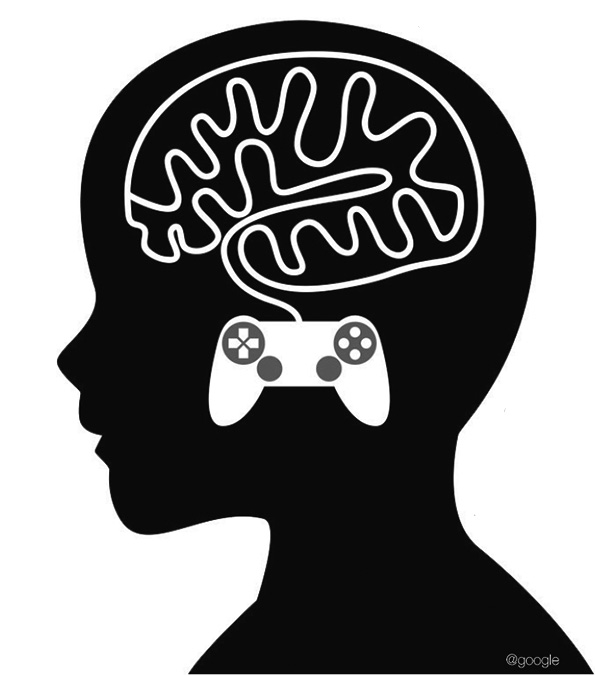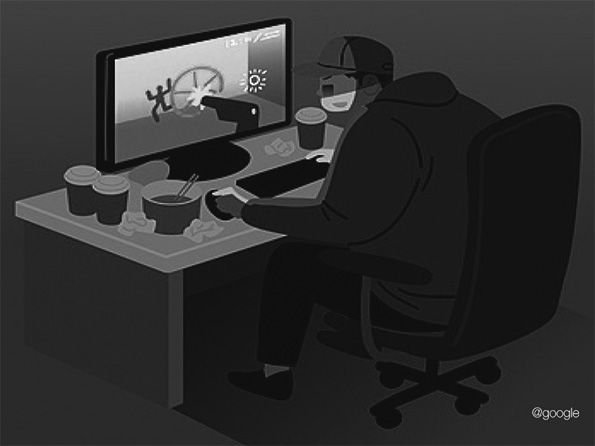In May, WHO (World Health Organization) decided to give gaming disorders registered disease code, and the Korean government decided to do the same. The pros and cons of adopting a gaming disorder disease code were discussed by the Korean government. WHO recommended a new disease code policy for 2022, but the actual implementation in Korea will be 2026.
The names for gaming disorders differ. In the medical field, gaming disorders are called game-use disorders, and in the gaming industry, they are known as game indulgences. Government ministries are also divided on following WHO. The Ministry of Health and Welfare approved of the code, while the Ministry of Culture, Sports and Tourism objected to it. In response, the Office for Government Policy Coordination held a meeting of vice ministers from related ministries and asked for them to seek a reasonable solution.
Social problems are often the causes of gaming disorders. In some cases, high school students went to a PC room with a gift voucher from a blood donation if their parents took away their computer privileges. In another case, a 6-year-old child was addicted to a game and got angry when his parents did not allow him to play the game. In 2001, an elementary school student broke into a neighbor’s house to play a game. When he was caught by the house owner, he seriously injured the owner.
A gaming entertainer, Daedoseokwan, said on Youtube, “I’m against registering the disease code. First of all, there are many kinds of addictions. Shopping and exercising are also addictive. However, people don’t recognize these as diseases. For example, when I fell in love with music or golf, I enjoyed them during a break from my work. No one could say to me that I had an addiction. Also, those kinds of hobbies were limited because I could only enjoy them when I could afford to do so. The same goes for games. Even if some people become addicted to gaming, they can be cured with counseling. I think that it’s not right to equate gaming disorders with alcoholism, gambling, or drug-abuse. For example, computer programmers study tactics; it’s the same as when chess players study tactics. Many teens are using strategies and tactics to play games. There are also social networks for many games. Players can mature through these social networks.”
The symptoms of gaming disorders listed by WHO are behaviors that are repeated online or offline. They include inability to control duration of gameplay, the prioritization of gaming over other activities, and the continuation or escalation of gaming despite negative results. A diagnosis of the disease can be made after excessive frequency or intensity within a 12-month period. However, if the symptoms persist for more than 12 months, the disease is recognized as chronic.
In a survey of 1,013 adults across the country conducted in June, the chief of a think-tank in the Bareunmirae Party, Hong Kyung-joon, said 53.6 percent of the respondents were in favor and 40.6 percent opposed. Many of the approvals were from people in their 50s and housewives, but many of those who opposed were people in their 20s, the actual users of games.
Opponents say that there was no reason for the mandatory introduction. Wi Jung-hyun, a chairman of the Korean Society of Gaming Society, said, “The registration of the code is a choice for Korea. What the WHO has designated is just a recommendation. Secondly, he said the standards of gaming disorders are vague and ambiguous. They can’t distinguish between playing a basic game for a long time or playing a PC game for 2-3 hours. Therefore, they need to study gaming disorders more.”
First, some people are concerned about pathological phenomena arising from a lack of proper guidance of gaming behaviors. Eo Ki-joon, the director of the Korean Institute of Living and Computer Science, said, “There were students who were diagnosed with gaming disorders when they surveyed teenagers in Korea. However, there were cases when some students didn’t answer truthfully. If the code is registered, it could lead to more efficient diagnosing.”
Second, he said, “You have to distinguish between gaming as a culture and gaming as a disease. Gaming isn’t an addiction. However, if it becomes excessive, it should be classified as a pathological phenomenon. In severe cases, those who are addicted have confused day and night or even shown violent tendencies against acquaintances. Users can enjoy the cultural aspect of gaming, but even if only 10 percent of all gamers become addicted and cause family issues, it will lose importance as a cultural industry.” Third, those who supported the code insisted that it is needed for prevention of social problems. Yeon Eun-hee, the director of the Cheongju Psychological Counseling Center of Hanyang Eisori, said, “Let’s imagine we have a sore throat or a fever. Then, we take medicine and keep our body temperature warm to prevent a more serious illness. I think gaming is the same as that. If we use the internet properly for social purposes, it becomes an atmosphere of communication, but if not, it leads to social troubles. Like a cold, prevention is more important than treatment in games. However, if you get sick, you’d better get help from a doctor. It is necessary for gaming disorders to be classified as disorders.”
Jang Seung Shin, a student majoring in Psychology, said, “I agree with registering a gaming disorder disease code because gaming addiction is a behavioral addiction. A behavioral addiction, like drug addiction, becomes difficult to control when you become addicted because it changes our brain’s hormonal system. To solve the problem, addicts need professional help such as psychotherapy. If gaming disorders are classified as disorders, it will be easier to get medical solutions.”
Ahn Gi-tae, majoring in Civil Engineering, said, “I don’t agree with registering gaming disorders with a disease code. In the information age, smartphones and computers have become necessities. Of course, cultures associated with them can be created and hobbies can be created. It is natural to invest time and money when enjoying a hobby. Also, there is the profession of professional gaming. If a disorders code is registered, professional gamers might experience some disadvantages. It will affect the development of the gaming industry.”
Yeon Eun-hee said, “A disease code is a code that systematically categorizes disease characteristics for utilization with medical records, causes of death, and various health statistics. Gaming disorders will be given the code 6C51, and they will be included as a sub-item for the areas of mental, behavioral and neurodevelopmental disorders. Namely, gaming disorders have become an official disease, so the national health authorities will then be able to draw up disease-related health statistics and arrange the budget for disease prevention and treatments. Also, just as depression isn’t a mental illness, this concept might cause people to recognize gaming in the same way.”
Gaming is a personal choice and a liberty. It was also someone’s choice to try to improve the gaming culture by registering a gaming disorder disease code. There may be conflicts between opinions about what is right and wrong. The Korean government should reach an appropriate agreement in a prompt manner. Both sides agree that, when people enjoy games as a culture, the desirable direction of playing games is to play safely and happily. CBNU students have to balance their time between school life and gaming.
By Ahn Young-tae | ytann05@cbnu.ac.kr
By Jung Jin-ju | asd030@cbnu.ac.kr



 All
All Feature
Feature






 Ahn Young-tae
Ahn Young-tae











